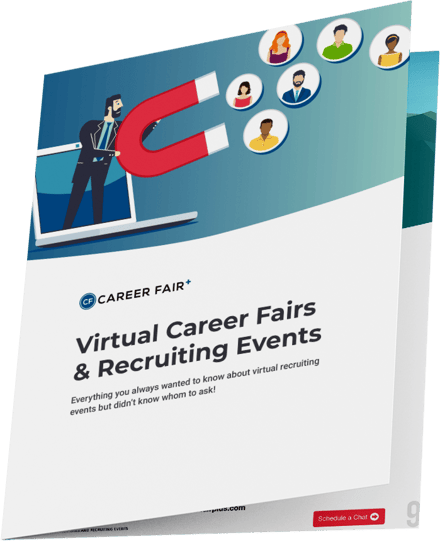My conversations with career services professionals across the country confirm what David Kozhuk shares in his recently published The Evolution of Career Services1: 3 Phases to Inform Where We’ve Been and Where We’re Going — our industry’s changing.
There’s a subtle shift from the current department-centric student support model to a broader strategy of integrating career services into campus life. There’s value in this change, but unless we also advance from a transactional to a relational mindset, it won’t matter.
Simply subscribing to a different job board or a popular sales-driven customer relations (CRM) platform doesn’t equate to career development. Each participant in the early talent network—career services, students, and employers—should focus on replacing transactional task management with building relationships at scale.
I’ll get to the how later. For now, I want to start the conversation about why this redirection is necessary by following Kozhuk’s lead of looking at the history driving today’s changes.
About 40 years ago
Kozhuk explains that career services’ original role was meeting in-the-moment needs like leading resume writing workshops and building students’ interview skills.
Over time, priorities shifted to building students’ confidence and competency during job searches. Offerings expanded to mimic real-world experiences like networking practice and mock interviews. Innovative software applications automated the crucial discovery process of finding post-graduate work.
Now-familiar job boards like Handshake and Symplicity premiered as seemingly magical solutions to effortlessly connect employers and students. Other technology solutions further informed advising, skill assessment, and overall operational changes.
I agree with Kozhuk that career services operations are changing again. However, I disagree with the implication career services are well-equipped to lead the charge toward campus-wide integration. Here’s why.
“We can’t solve our problems with the same thinking that created them.”
~Albert Einstein
We need a new starting line
Career services are establishing themselves as an organic part of campus life. They’re considering engaging or preparing faculty, staff, alums, employers, and parents for meaningful career-planning conversations with students. Adding multiple stakeholders to the career development process also bolsters career services staff working with limited resources.
It makes sense. Career services are ideally positioned to guide students beyond securing first jobs to setting career goals. What doesn’t make sense, however, is the starting point to successfully fully “embed career into the overall student experience.”2
The goal is good; the mindset is wrong
Campus-based career services can’t make this paradigm shift until they rethink their historical and current transactional focus. Big job boards like Handshake and Symplicity streamline the application process, but they can’t support the complexities of career development. These platforms are necessary but insufficient because they emphasize speed and algorithmic matches over meaningful engagement.
Relationship building is the essential foundation of integrated campus-wide career services. And the accompanying software has to facilitate relational activities rather than task completion.
Comprehensive student career development requires career services to evolve from primarily information hubs to fostering experiences and long-term engagement across the early talent network. This shift is the only way to build relationships between job seekers, career advisors, and employers at scale.
Implementing a relationship-building paradigm
In my rebuttal to Ryan Craig’s call to abolish career services, I reject his assertion that job boards like Handshake and Symplicity replace career services professionals. As a software engineer with a recruiting background and a co-founder of a higher education SaaS company, I’m a big fan of technology. And I strongly recommend using technology as designed. Don’t force it into ill-fitting applications unless you want to:
- Spend more on customization.
- Hire implementation consultants
- Spend excess money and time on onboarding
- Train endlessly
- Miss collecting relevant data
- Waste hours searching for workarounds instead of working
Subscribing to giant job boards or customer relationship management (CRM) systems doesn’t mean your career services team is well-equipped to take on the university-wide integration Kozhuk says is everywhere. But a software solution built exclusively for career services changes everything.
Implementing and maintaining the new paradigm
CRMs manage and analyze customer relationships in the context of the sales processes. These platforms collect and track standardized customer data instead of addressing the unique elements of interacting with employers and recruiters. Sales-oriented software doesn’t accommodate the early talent ecosystem, resulting in lost productivity and missed engagement opportunities.
In March 2023, CF+ launched the innovative product suite Career Forge, replacing checklists and reminders with relationship-building tools for the early talent network of career services (CS), students, and employers.
The first solution, Career Forge | ERM, is the industry’s first Employer Relationship Management platform. The technology is purpose-built for career services teams to create and grow employer relationships instead of only facilitating sales tasks. Why? Because relationships build trust, which increases employer engagement with career services and students, leading to:
- More job postings
- Increased numbers of high-value interviews
- Better student outcomes
The cornerstone Career Forge product is a long-overdue direct competitor to Handshake, Simplicity, and 12Twenty. Innovative Advising and Experiential modules spur relationship building; reimagined Jobs and Events modules power long-term career development for early talent.
Anticipated release is within 9-12 months, but you can secure your spot in the advance notice group now. Join the notification list for Career Forge | ERM product upgrades and advance release announcements. Signing up for the CF+ newsletter puts beneficial industry, Career Forge, and CF+ at your fingertips.
Campus career services are evolving to prioritize lasting relationships over repetitive transactions. Tools like employer relationship management systems represent the next stage, emphasizing nuanced interactions among all stakeholders. The goal is to create and maintain an environment that supports students’ career development at every touchpoint of their undergraduate journey.
People excel at solving uniquely human challenges. Give your career services team the career-services software built to solve career services challenges in uniquely human ways.
1 https://www.gouconnect.com/career-everywhere/the-evolution-of-career-services/
2 https://www.gouconnect.com/career-everywhere/the-evolution-of-career-services/
